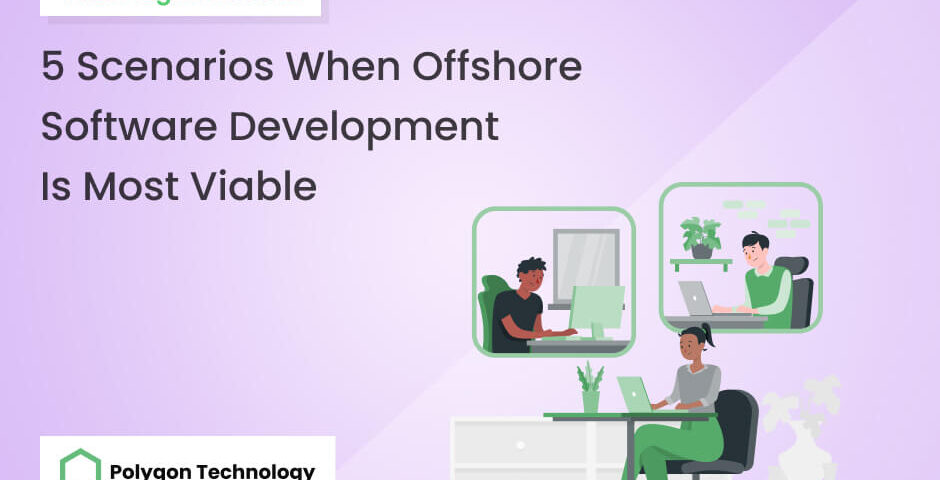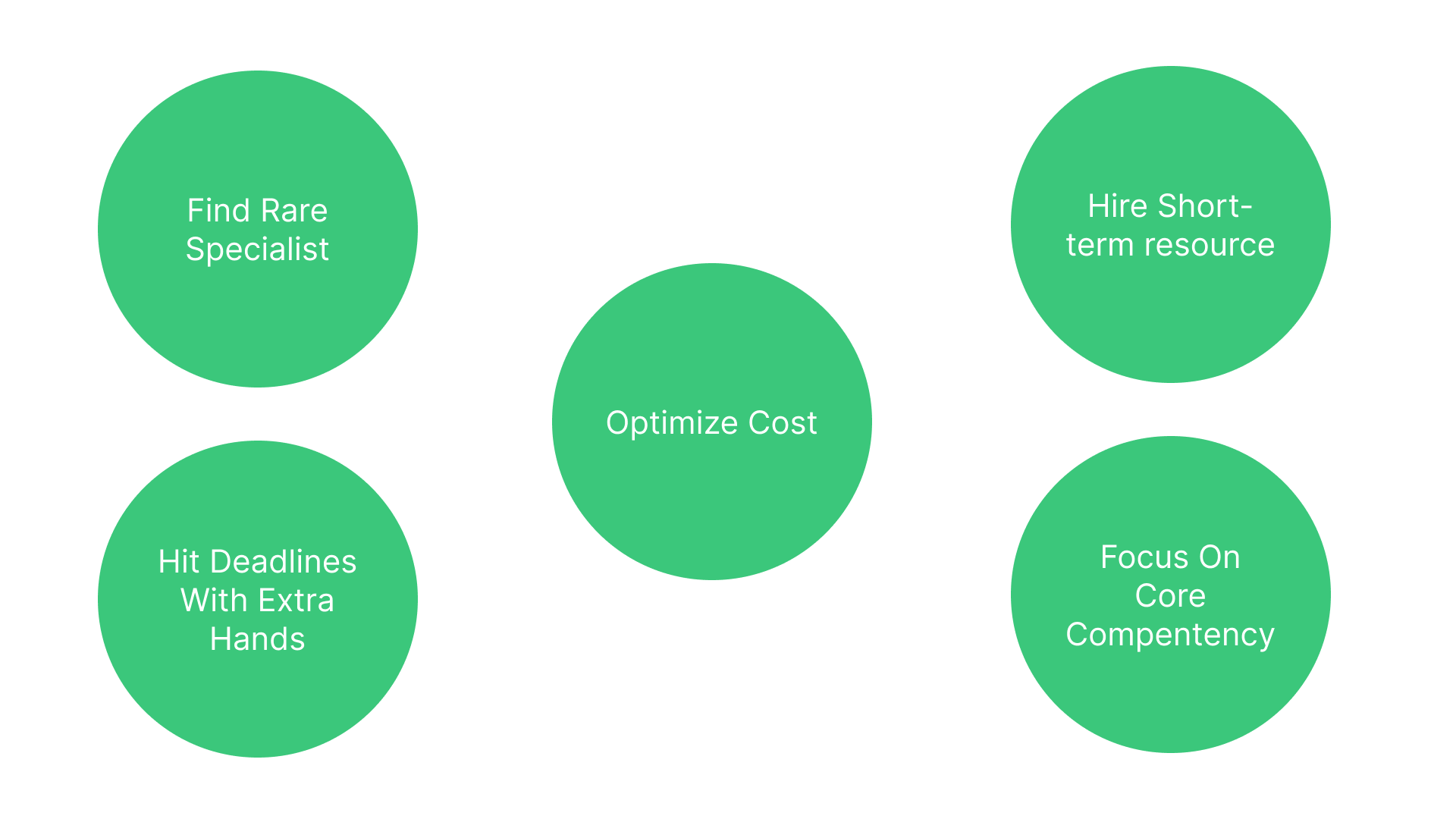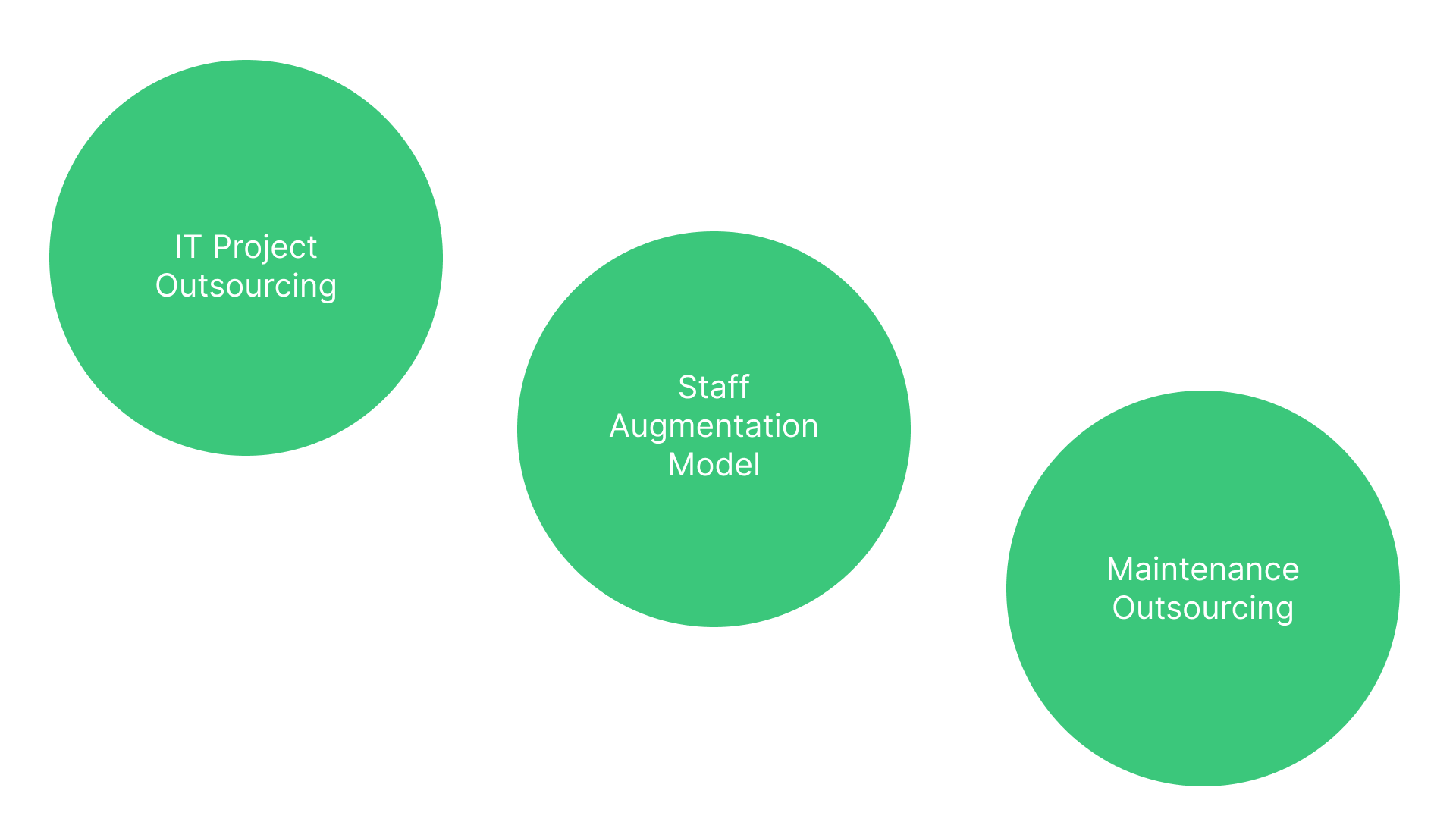
5 Scenarios When Offshore Software Development Is Most Viable
5 Scenarios When Offshore Software Development Is Most Viable

Sadman Sakib Khan
Sadman is a marketing professional and a fervent devotee of the ever-evolving world of marketing & technology. Possessing a knack for crafting compelling narratives, Sadman passionately engages in the creation of top-tier content in close partnership with esteemed subject matter experts. During his leisure hours, he indulges in the art of musical expression, immerses himself in cultural exhibitions, watch anime, and travel.

Whether you are a business owner who wants an app to upscale your business or a project manager trying to finish the project within time and budget. You need your technology buddies to help bring your ideas to light.
Let’s face it: hiring software engineers can get tricky. Hiring the right resources for the right project is difficult. Especially when you’re maintaining budget and time.
In this blog post, we’ll discuss when offshoring your software development makes the most sense. And, explore engagement models best suited to your needs. But before we dive into it, let’s get to know —
What Is Offshore Software Development & How It Started?
Offshore software development refers to outsourcing your software team from another country.
The history of software development dates back to the 1970s. The practice of offshoring became popular in the 1990s. Thanks to the internet. Particularly India, China, Russia, and Eastern Europe became popular destinations. In the early 2000s, companies from the US and Europe began offshoring software development due to a shortage of skilled resources. However, this raised concerns about the quality and protection of intellectual property. Which led to the development of standards and regulations governing the industry today.
Offshoring Software Development Mistakes
Offshoring software development is a brilliant business strategy if you do it right. The thing that most people end up doing is that they want the offshore team to do everything, and this is where the problem starts.
What matters the most, in this case, is first understanding whether you want your software to be intellectual property or not. In the software industry, having unique software ideas is rare, but still, you do have the option to make it your own.
The next thing you need to decide is the level of control you want to have on the operational level. Now, if you think your outsourced team is well-structured to operate on its own, that’s great. Good offshore vendors offer technical project managers alongside the team. But still, if you do want to maintain further control, hire a technical project manager onshore.
Now, you want to ensure smooth communication. You must find a vendor that speaks your language. Having a language barrier, especially in the case of software development, is a huge hassle. High-quality vendors often speak the languages of the countries they offer services. But to be on the safe side, you should hire a bilingual project manager from your end. Also a project manager from the vendor’s end to ensure smooth communication.
Another common mistake businesses make is an overreliance on the offshore team. As we have mentioned before, you must make sure of the level of control you want to have on your team. Overreliance can lead to chaos. Not having enough oversight and failing to provide proper guidance is a recipe for disaster. That’s why you want to hire an onshore project manager.
Setting unrealistic expectations is the next thing you want to avoid. This is another reason why you want one project manager, let it be from the offshore team’s end. You can’t have stressed developers building your product and expect quality.
When Offshoring Software Development Makes The Most Sense?

Offshoring your software development makes the most sense when you fit one of these criteria:
- You Wanna Optimize Cost: One of the main reasons people consider offshoring software development is to optimize cost. Countries with a lower cost of living offer lower labor costs.
- You’re looking for Rare Specialists: Finding a rare specialist can be hard, and it’s even harder to retain them without liabilities.
- You Need Short-Term Resources: In some countries, it’s difficult to hire short-term resources because of regulations.
- Enhanced Focus On Core-Competency: When your business is not in the tech genre, but you wanna add a tech product to further boost your business, that’s when offshoring is most viable.
- You’re Missing Deadlines: When you are running on strict deadlines and you need extra hands to finish your project milestones, this is when offshoring is a viable option.
Which Managed Service Engagement Model Is Right For You?
Now, let’s explore the managed software development service engagement models. Decide which is the best fit for you.

IT Project Outsourcing Model
In this model, you hand over the entire project to the offshore software development team. This model works best when you know exactly the outcome of the project and the work scope is clearly defined. Making it easier to hand over the entire project to your offshore team.
Staff Augmentation Model
This model adds external team members as an extension to your internal team. In the following scenarios, it works best —
- You already have a Dev Team
- You need a rare specialist
- You’re Missing Deadlines and need extra hands
- You’re looking for a short-term resource
Maintenance Outsourcing
As the name suggests, this model is only for maintenance. All tech products need maintenance. Regardless of whether your business is in the tech genre or not. If you have a tech product involved in your business, maintenance is a must. Going in for outsourcing makes the most sense in this process, as it optimizes your cost to the company, and you get quality service and issues fixed efficiently. You get dedicated tech ops, SQA, and engineers looking after your product issues.
Key Takeaways
- Using offshore software development is a viable option when optimizing costs, finding rare specialists, or for short-term resource requirements.
- Over-reliance on offshore teams, unrealistic expectations, and language barriers are common mistakes in offshoring.
- Choosing the right engagement model is crucial for offshore software development success. The IT Project Outsourcing Model, Staff Augmentation Model, and Maintenance Model are the options to consider.
- Hiring a technical project manager onshore & offshore can help ensure smooth communication and provide proper guidance and oversight.
Wrapping up
To make the most of this strategy, it is essential to avoid common mistakes. Additionally, choosing the right engagement model is crucial for the success of the project. With the right approach and engagement model, businesses can leverage offshore software development to bring their ideas to light and achieve their goals within time and budget constraints. Polygontech offers both offshore and onshore product development, with solutions in every tech stack. Have a brilliant product idea? Get your free consultation today. Give ideas the realization it deserves.
Tags :